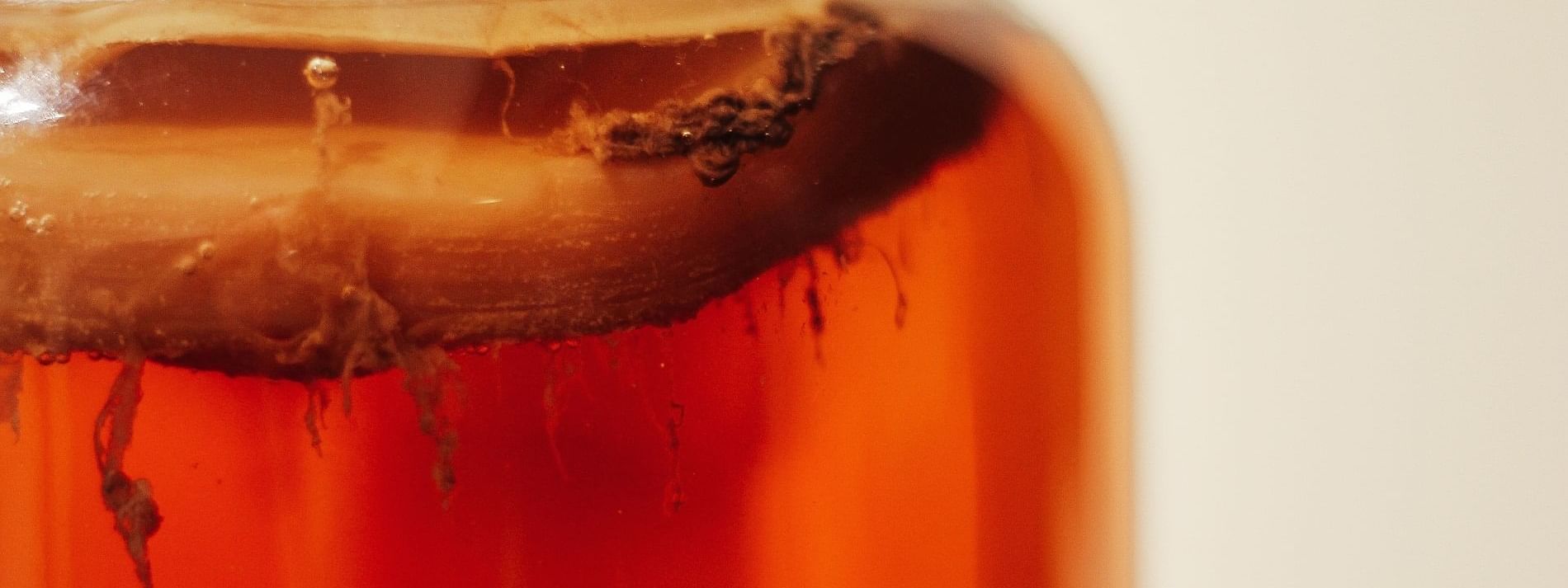Kombucha, kefir and gut health – your need-to-know guide
Unless you’ve been living under a rock lately, you’ll have noticed kombucha has become a staple in drinks fridges everywhere from supermarkets to service stations. But what is kombucha, and more importantly, is kombucha good for you?

Kombucha is a fizzy fermented drink made from tea and sugar that’s probiotic rich to improve your digestive health – and according to accredited practising dietitian Dr Joanna McMillan, that benefit is backed by science.
“I do think kombucha deserves our attention,” she says. “Although in its infancy, there is emerging research to show good-quality kombucha can have good effects on gut health from the probiotics, and we know the acids present are also good for the gut. It has antibacterial effects preventing pathogen growth, it’s a good source of antioxidants and may have anti-inflammatory and anti-cancer effects.”
However, not all kombucha is created equal, she stresses.
“You want to make sure you have a traditionally made kombucha, that uses a well-researched probiotic strain of bacteria, good-quality tea, low residual sugar, no added sweeteners – including stevia, as we don’t know the effect of this on the gut – and one that comes in the fridge as fresh, not reconstituted.”
What’s the deal with kefir?
Another fermented food gaining attention in recent years is kefir, a fermented milk with a similar texture to yoghurt but runny enough to drink.
“Like kombucha, any health benefits in kefir likely come from a mixture of the probiotics and the acids produced in the drink,” McMillan says. “Fermenting milk helps us to digest it – particularly for those with lactose intolerance – and the organisms used then have a benefit within the gut. So yes, I think kefir is a terrific food to include in your diet.”
Other gut-health boosting foods
Beyond kombucha and kefir, other fermented foods that can benefit gut health include sauerkraut and kimchi. But McMillan says the most important group of foods when it comes to gut health are those that contain prebiotics, such as wholegrains, legumes, nuts, seeds, vegetables and fruit.
“These are the fibre types that specifically fuel the gut microbiome,” explains McMillan.
She adds: “We also know that high polyphenol foods and drinks are great for the gut microbiome and gut health. These include tea, coffee, cocoa, red wine, berries, pomegranate, leafy greens, herbs and spices.”
How to make homemade yoghurt
This homemade yoghurt recipe created by McMillan is great for boosting gut health and can be used to top savoury dishes instead of sour cream (think: fajitas and soups) or mixed with fresh fruit or honey for a sweet snack.
- Gently heat 1 litre milk in a saucepan to around 40°C.
- Sprinkle with yoghurt culture (you can buy this in health-food stores or online), using the packet directions for quantity. Mix thoroughly and then pour into a clean container for your chosen yoghurt maker. (You can use a commercial yoghurt-making machine or a simple thermos-style yoghurt maker.) Pour hot water into the yoghurt maker or thermos then sit your container inside, pop on the lid and leave to ferment overnight for 8-12 hours.
- Remove from the thermos and refrigerate for at least an hour.

Join Crown Spa Society
Welcome to Crown Spa Society, our exciting new online community designed to keep you up to date with all that is happening in the health, beauty and wellness space, as well as all the latest news and offers from Crown Spa.

